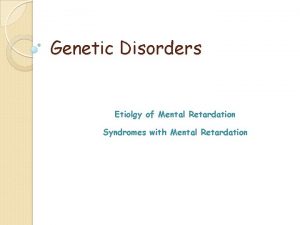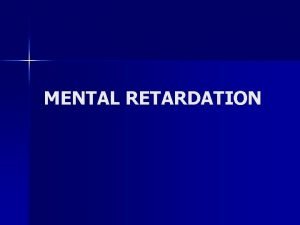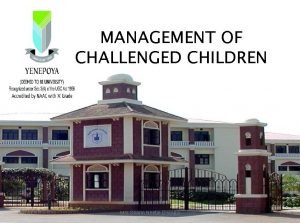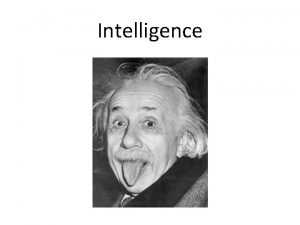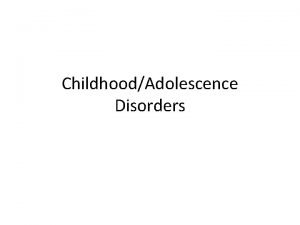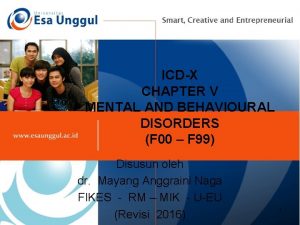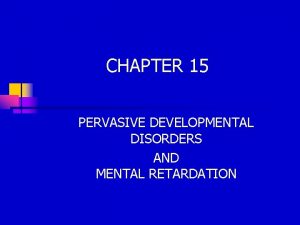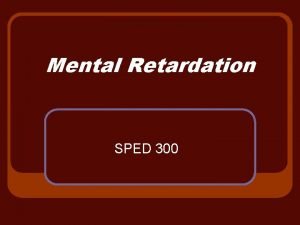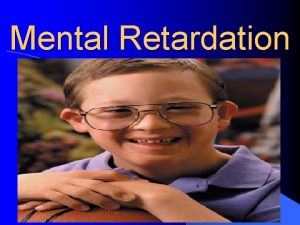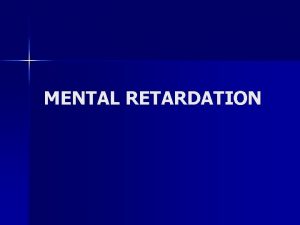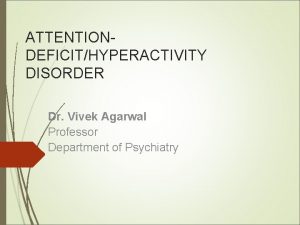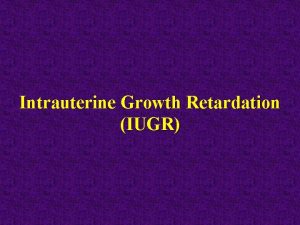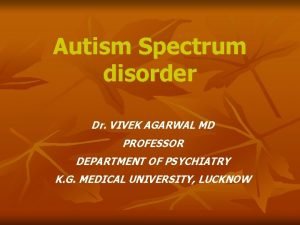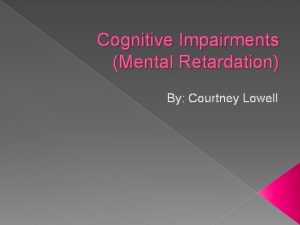Mental Retardation Dr VIVEK AGARWAL MD PROFESSOR DEPARTMENT











- Slides: 11

Mental Retardation Dr. VIVEK AGARWAL MD PROFESSOR DEPARTMENT OF PSYCHIATRY K. G. MEDICAL UNIVERSITY, LUCKNOW

Characteristics Slow or arrested intellectual development Below average intellectual functioning Impaired adaptive functioning Onset before 18 years IQ less than 70

Prevalence 1. 5 1 -3% times more in Males More in rural area

Clinical features 1. Delayed developmental milestones - Motor Language Social

2. Adaptive functions Daily living skills Academics Health and safety Socialization and communication Use of community resources Leisure time activities Occupation

3. IQ Mild MR- 50 -69 Moderate Severe MR- 35 -49 MR- 20 -34 Profound Most common 85% MR- <20

Mild MR Educable up to 6 th grade by late teens Can learn vocational skill to support self Moderate MR Can be educated up to 2 nd grade Can learn unskilled work under sheltered condition

Severe and profound MR Not educable or trainable Achieve limited self care Require constant support and care

Associated problems May have associated physical conditions epilepsy, hearing or visual impairment, cerebral palsy Psychiatric problems like hyperactivity, aggression, repetitive behavior, self injurious behavior

Causes Genetic- Down’s syndrome, Fragile X syndrome, inborn errors of metabolism, Tuberous sclerosis etc. Antenatal and perinatal causes- exposure to toxins, trauma, infections, birth hypoxia, congenital hypothyroidism Environmental Causes- Malnutrition, CNS trauma, infections, psychosocial adversity

Treatment There is no medicine to improve intellectual levels. Early detection and training is the best treatment Treatment of associated physical and psychiatric problems
 Dr vivek agarwal
Dr vivek agarwal Chromosome 13 abnormality
Chromosome 13 abnormality Causes of mental retardation slideshare
Causes of mental retardation slideshare Management of challenged children
Management of challenged children Mental retardation classification
Mental retardation classification What are the classification of mental retardation
What are the classification of mental retardation Mental retardation levels
Mental retardation levels Mental retardation nursing diagnosis
Mental retardation nursing diagnosis Icdx asma
Icdx asma Types of mental retardation
Types of mental retardation Mental retardation summary
Mental retardation summary Promotion from associate professor to professor
Promotion from associate professor to professor

